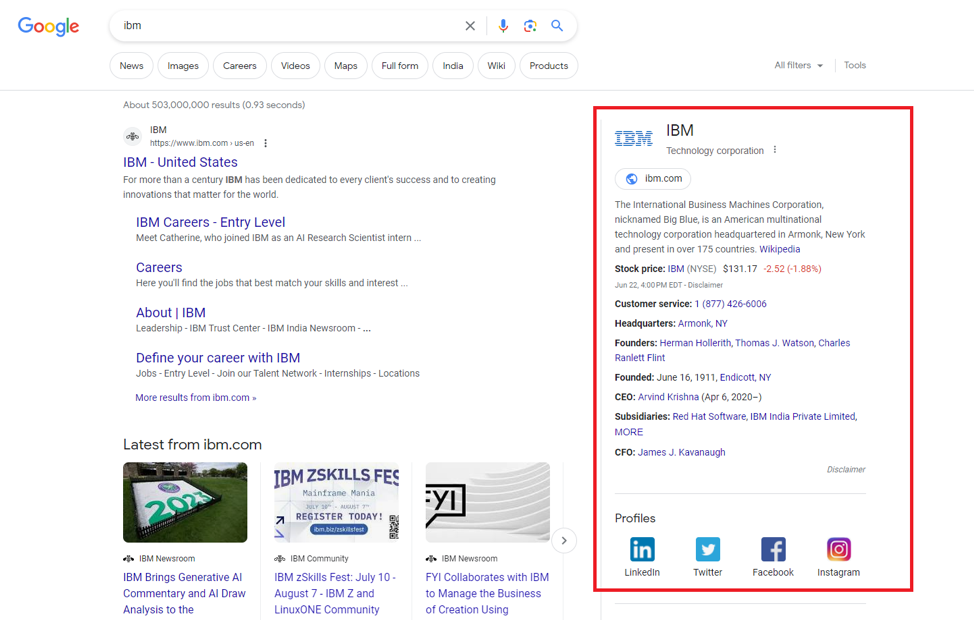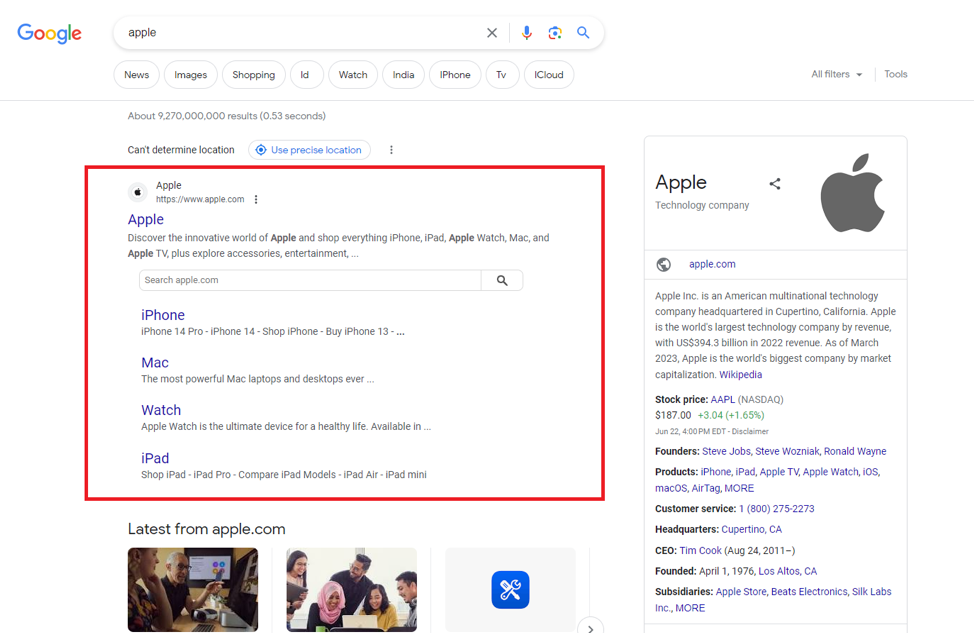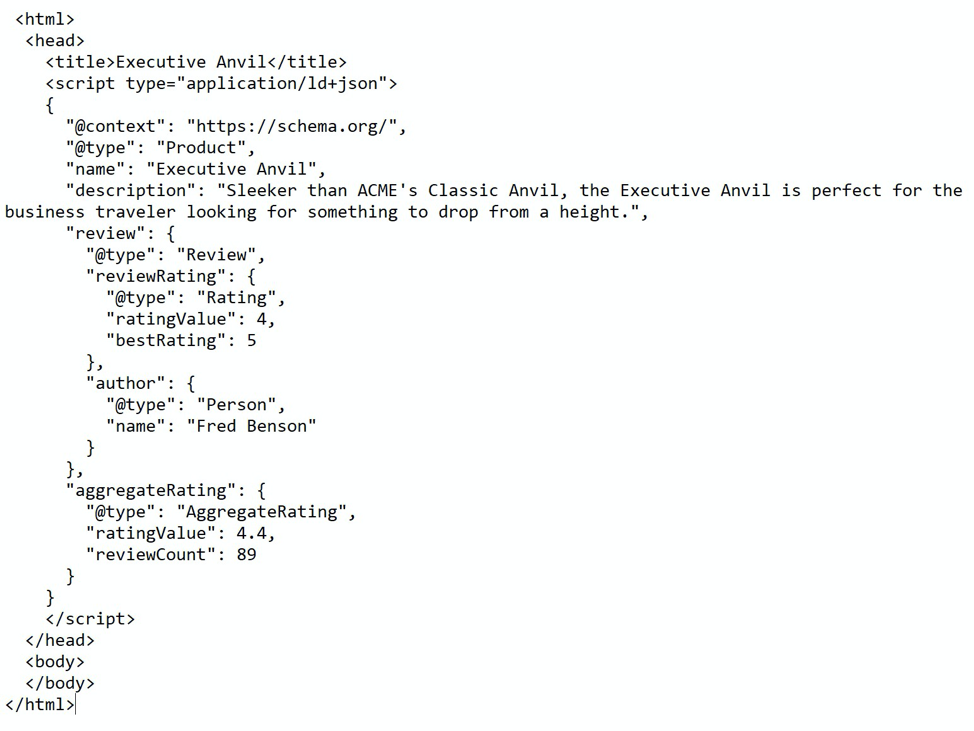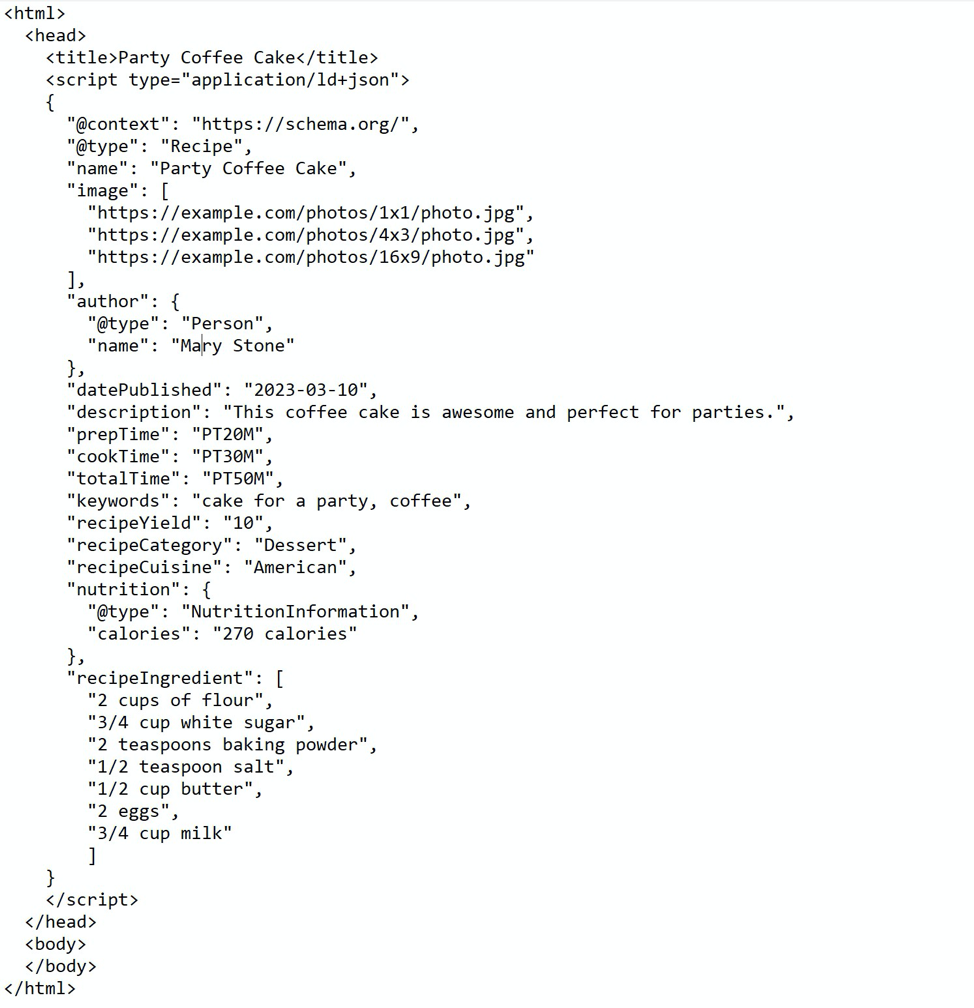Googlebot works really hard to understand the content of your site. And you can improve its understanding by using structured data markup. If you want to boost your website’s ranking and visibility in search engines, structured data and schema markup will speed up the process by providing standardized meta information that helps Googlebot better understand the meaning of your content.
This article’s goal is to provide information and advice on how to use Schema.org for enhanced search visibility using structured data markup. We’ll go through the benefits of structured data markup, how to use Schema.org for it, and how it can help a website’s visibility in search engine results pages. We’ll look at structured data markup and how to employ different methodologies, as well as discuss future trends and ramifications.
What is structured data markup?
At its most basic definition, structured data markup improves your SEO by adding code to a HTML page that makes the content easier for search engines like Google to process. Schema.org markup organizes this data in such a way that it helps increase the visibility of your web pages. It’s a very effective method of improving your search visibility.
What is the role of Schema.org?
Essentially, what makes Schema.org so useful is that it offers a shared vocabulary (approved by search engines themselves) when it comes to structured data on the web. The tags and schemas defined by Schema.org allow easier annotation of the page content. They are crucial for assisting search engines in interpreting and indexing data, leading to more accurate search results.
Schema is one of the most effective structured data markup when it comes to helping sites communicate better with search engines.
How structured data improves search engine understanding
Structured data enhances search engines’ understanding of your content by providing more context to the content. It makes the meaning and aspects of different elements more easily understood. This includes things like events, reviews, product details etc.
When search engines are able process and categorize web page content faster, they can display useful information like rich snippets and knowledge graphs to improve searchers’ page experience.
Popular types of structured data markup
There are several examples of structured data markups designed specifically to increase your website’s visibility. When it comes to business, the Logo (Organization) markup is a good example. It helps get your company logo into the knowledge panel along with other business information.

This is how it looks like in the code:

For e-commerce web pages that include elements like price, reviews, and availability, the Product markup is an excellent choice.

Here’s a sample HTML code for the Product markup:

For food websites that include elements like recipes, cooking time, ingredients and calories, the Recipe markup is a fantastic choice.

Example Recipe markup code:

These are just some examples of the different types of markups available. There are many more markups, including for events, reviews, and everything else under the sun.
Here are Schema.org markup types by the number of hosts implementing them:
| Markup | Number of Hosts |
| Organization | 5,915,483 |
| LocalBusiness | 1,197,063 |
| Event | 313,782 |
| Product | 2,551,754 |
| Recipe | 40,702 |
| Book | 21,623 |
| Restaurant | 63,121 |
| Movie | 7,801 |
| JobPosting | 50,466 |
| Answer | 251,442 |
| GeoCoordinates | 461,695 |
| Hotel | 24,065 |
| FAQPage | 230,283 |
| Question | 254,857 |
| LocalBusiness | 1,197,063 |
Obviously, webmasters won’t implement them were it not for the advantages.
Benefits of using Schema.org markup
The pros of implementing Schema.org markup are:
- Better search engine understanding of your content, leading to a better intent match for search queries.
- Rich snippets such as reviews, ratings, etc. that give you more visibility in the SERPs and increase your CTR.
- Your site is more likely to appear in more specialized search results e.g. events, recipes, etc.
- Your site comes off as more credible since you provide accurate and well-structured content for users and search engines.
As you’ve probably gathered, structured data can make a substantial impact on the SERP for a query. Structured markup lets Google dissect your content and display it within various forms of rich snippets, increasing the chances of users seeing, being drawn to, and clicking through to your site from the SERPs. Higher click-through rates, better search visibility, quicker indexing, and voice search dominance are just a few advantages of structured data.
Factors affecting search visibility with Schema.org markup
There are numerous things to take into consideration when it comes to the way Schema.org markup impacts the search visibility of your site, such as
- Thoroughness of the markup implementation
- Relevance and accuracy of the structured data
- Overall UX
- Content quality of the website
- Page loading speed
- Up-to-date markup from Schema.org
Implementing structured data markup
There are some best practices and strategies to keep in mind when it comes to leveraging Schema.org. Here are the steps to follow to implement structured data markup correctly:
- Identify the most appropriate schema type for the content of each page.
- Insert the schema markup code into the HTML of your page. Make sure that you represent your content comprehensively and accurately.
- Ensure that the manner through which your structured data is implemented on your website is consistent across the board for all pages.
- Stay in sync with search engine guidelines and Schema.org. Use Google’s Structured Markup Testing Tool and org’s own validation tool to check and validate your markup.
- Monitor how your structured data implementation is impacting your website and make the necessary adjustments to improve your SEO. For this, you can use Google’s Rich Results Test.
Tools for generating Schema.org markup
There are a lot of tools and resources out there which can help you out with generating Schema.org markups.
Google has a Structured Data Markup Helper, which is very useful for creating and validating structured data. You’ll also find a lot of detailed examples, documentation, and information on Schema.org on how to implement structured data.
JSON-LD Generator is also a great tool that streamlines the process with a straightforward and intuitive interface. WordPress has plugins like Yoast SEO and Schema Pro which can be used to generate Schema.org markup. And last but not least, ChatGPT and its CodeInterpreter are extremely useful tools to generate markup code.

Image source: http://www.tothenew.com/
Common Challenges in Schema Implementation
Some challenges that come with implementing structured data markup include:
- Inaccurate/incomplete markups can mess with your site’s visibility. Be careful and double check when you choose a schema type for every piece of content. A few schemas might overlap or be ambiguous in their descriptive functions.
- Not keeping up with Schema.org updates or search engine guidelines is a big mistake. These change frequently and might affect the accuracy of your markup.
- Numerous technical issues could potentially arise when implementing structured data. Make full use of testing tools to monitor and address these issues.
Testing and validating structured data implementation
If you want to ensure optimal results and visibility for your site, then you need to test your structured data implementation regularly. As I’ve mentioned plenty of times already, Google’s Structured Data Testing Tool is a great way to do so. You can use it to make your markup more accurate and weed out potential errors.
Make sure you validate the markup on all your pages to ensure everything is consistent.
Use the Rich Results Testing Tool to see what your SERP listing actually looks like. And always conduct regular audits and reviews to see if there are any ways to improve visibility.
Additionally, you can track rich results performance in Google Search Console. Go to Performance > Search results to generate reports on rich results. Add a new filter with the “+” and choose Search Appearance. Then pick the option you want to analyze from the list.

Emerging trends in structured data
Emerging trends structured data markup include the introduction of new schema types to accommodate evolving content formats such as podcasts, videos, and virtual events. In line with advancing technology and search engine capabilities, Schema.org keeps developing and releasing updates. By following these updates closely, you can provide a better UX, maximize search visibility, and remain relevant.
Updates in search engine algorithms
The Google algorithm is continuously evolving in an effort to provide more relevant and accurate search results. Answering the user’s query and giving them a pleasant experience while doing so is Google’s aim at all times. Updates to their core algorithms continue to place a strong emphasis on content clarity, page loading time, responsiveness, and security.
If you want to keep your search visibility and organic traffic intact, you’d better stay on top of these algorithm changes, abide by best practices, and optimize your structured data markup appropriately.
Optimizing structured data for voice search and mobile devices
Optimizing structured data for voice search and mobile devices is crucial for enhanced search visibility. Make sure the schema markup is responsive and mobile-friendly. Give voice search-relevant content that is brief and conversational top priority.
For voice search intent, use schema types like FAQ and How-to. Keep improving the usability, functionality and speed of your website on mobile devices. This will give your content better chances of ranking for voice queries too.
Structured data is the gift that keeps giving
Implementing Schema markup offers consistent long-term benefits and ROI on your SEO efforts. Needless to say, the increase in CTR and organic traffic resulting from rich snippets and improved search features means more revenue generated from your site.
Directly or indirectly, using structured data builds trust, improves user experience, and fosters a better connect between your content and search engines. This translates to more brand awareness and higher ROI for the business.








